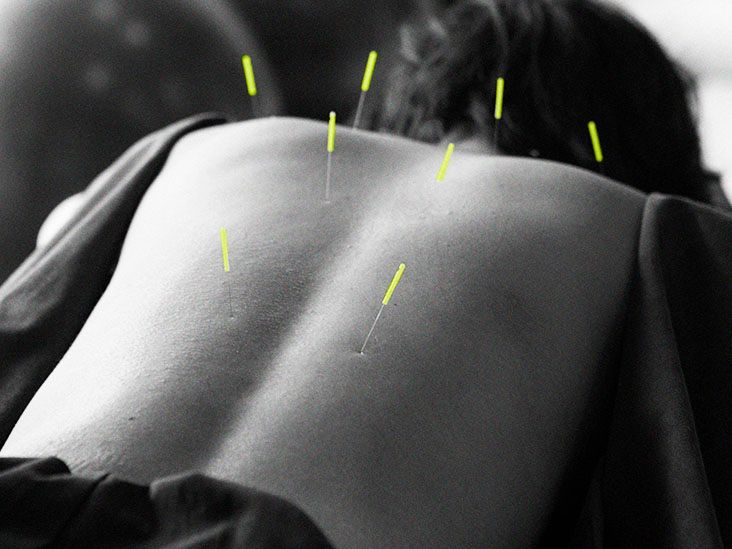- A new study examined how acupuncture affects sleep in people with Parkinson’s disease.
- The researchers compared real acupuncture with ‘sham acupuncture,’ where they performed the procedure without sharp tips or otherwise prevented the needles from fully entering the skin.
- At the end of the study, the researchers learned that the patients who received the real acupuncture therapy experienced improved sleep at a higher rate compared to the people who received the placebo therapy.
- The patients who received real acupuncture also experienced an improved quality of life as a result of the improved sleep.
Parkinson’s disease is a type of nervous system disorder that affects movement and can cause cognitive changes. While there is not a cure for the disease, there are some treatments available that can either slow progression or help with symptoms.
One problem many people with Parkinson’s disease face is difficulty with getting quality sleep. Poor sleep can exacerbate symptoms, so researchers based in China recently conducted a study to see whether acupuncture can help improve sleep.
When compared to a placebo form of acupuncture, the study participants saw improvements in both sleep and their quality of life.
The study findings are published in
According to the
An early
Parkinson’s disease worsens over time, but symptoms can be managed with medications, surgical treatments such as deep brain stimulation, and occupational or physical therapies.
While these therapies help with symptoms, they can also contribute to reducing sleep quality in people with Parkinson’s disease. Poor sleep can worsen Parkinson’s symptoms and overall contribute to a worsened quality of life.
Sometimes providers prescribe sleep medications, but oftentimes these medications cause drowsiness during the day. This led researchers in the current study to see whether acupuncture could help with sleep quality.
Acupuncture is a form of traditional Chinese medication and has been around for thousands of years. According to the
- fibromyalgia
- sciatica
- osteoarthritis
- cancer pain
- migraine.
According to the authors of the current study, “when used as an adjunctive therapy with anti-Parkinson medications, acupuncture has shown positive effects in improving sleep quality and reducing motor symptoms.”
Since the prior research on using acupuncture to help with sleep quality in Parkinson’s disease was limited, the researchers in the current study wanted to delve further into this with a double-blind clinical trial.
The researchers studied 78 participants who were ages 30 to 80. All participants had moderate to severe sleep issues and were presently taking an anti-Parkinson’s medication.
Prior to treatment, all participants completed the Parkinson’s Disease Sleep Scale (PDSS) questionnaire. The researchers used this to assess their sleep quality.
The scientists randomly placed the participants into one of two groups: real acupuncture or sham acupuncture. The sham group was a placebo group that did not receive actual acupuncture therapy.
The participants received their acupuncture treatments three times per week for 30-minute sessions for 4 weeks. After the 4 weeks were up, the participants completed the PDSS again and then one more time at an 8-week follow-up.
The researchers also administered tests to assess motor skills and non-motor skills of the participants to see how deficits impacted their daily living.
After comparing the PDSS results between the real acupuncture group and the sham acupuncture group, the researchers found that the real acupuncture group experienced significant improvements in their sleep quality.
“Acupuncture provides lasting clinical benefits in improving subjective sleep quality in patients with Parkinson’s disease,” wrote the authors.
The participants in the real acupuncture group had an improvement of 29.65 points in their PDSS score at the 4-week appointment compared to a 10.47 point improvement in the sham acupuncture group.
Additionally, at the 8-week follow-up, the participants in the real acupuncture group continued to show improvement in their PDSS results but the sham acupuncture group did not.
The researchers saw similar results in the overall quality of life improvement for people in the real acupuncture group. They had a reduction in both motor and non-motor skills severity compared to their baseline scores.
Since none of the participants had adverse side effects, the authors concluded that acupuncture is a safe and effective adjunct therapy for improving both sleep quality and quality of life in people with Parkinson’s disease.
Lijana Shestopal, DTCM, LAc, CSMA, a licensed acupuncturist based in Illinois, spoke with Medical News Today about the study. Shestopal was not involved in this research.
She commented that:
“Considering that acupuncture has no side effects and it does not interfere with any of the pharmaceuticals the patient might be on, this is a groundbreaking finding.”
Shestopal treats patients with Parkinson’s disease and noted that the study can “really help with educating the general public just how much acupuncture can help.”
While she emphasized how much acupuncture can help, she also noted that people must stick with the treatment and be realistic about their expectations.
“It is not a magic pill from which you get automatic results after one treatment, but with a course of treatments, health does improve in many ways without side effects,” emphasized Shestopal.
Raveesh Sunkara, MBBS, MS, MCh, a neurosurgeon associated with ClinicSpots in Hyderabad, India, also spoke with MNT about the study findings. Like Shestopal, Sunkara was not involved in the recent study.
“Overall, investigating acupuncture for sleep in Parkinson’s disease holds promise for improving patient well-being,” Sunkara told MNT. “However, further research and overcoming logistical hurdles are necessary for its widespread integration into standard care.”
Sunkara noted that this type of therapy could be difficult for some people to obtain. He said finding acupuncturists who have experience treating people with Parkinson’s disease could be difficult, and the cost of the therapy could also pose a problem.
“Insurance coverage for acupuncture can vary, potentially limiting patient access,” he cautioned.
Sunkara also emphasized that acupuncture in people with Parkinson’s disease would not replace existing treatments for Parkinson’s.
“Acupuncture should not replace traditional Parkinson’s disease medications but can be a complementary therapy,” he advised.

